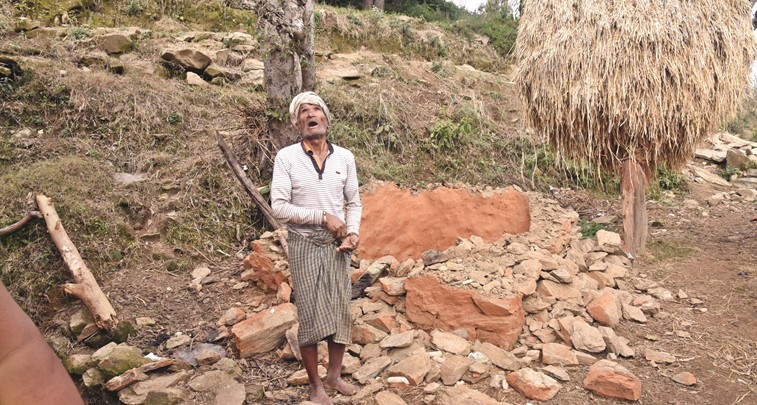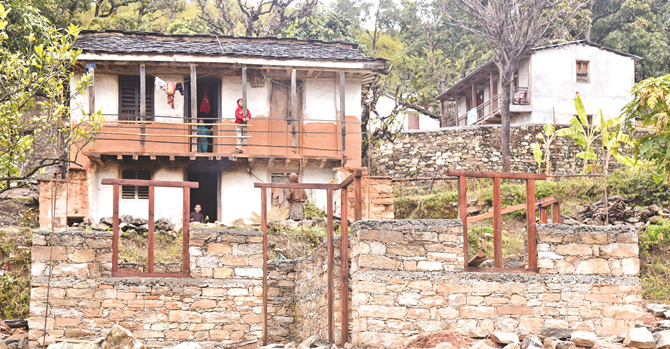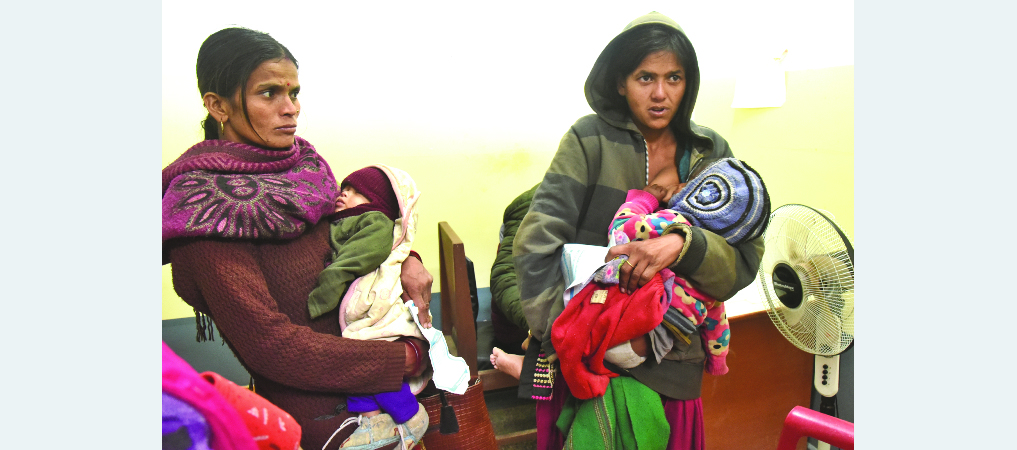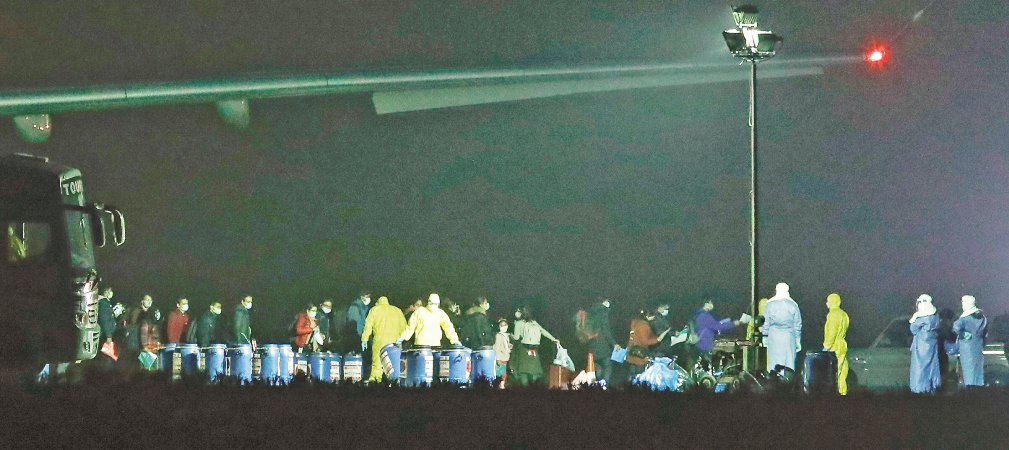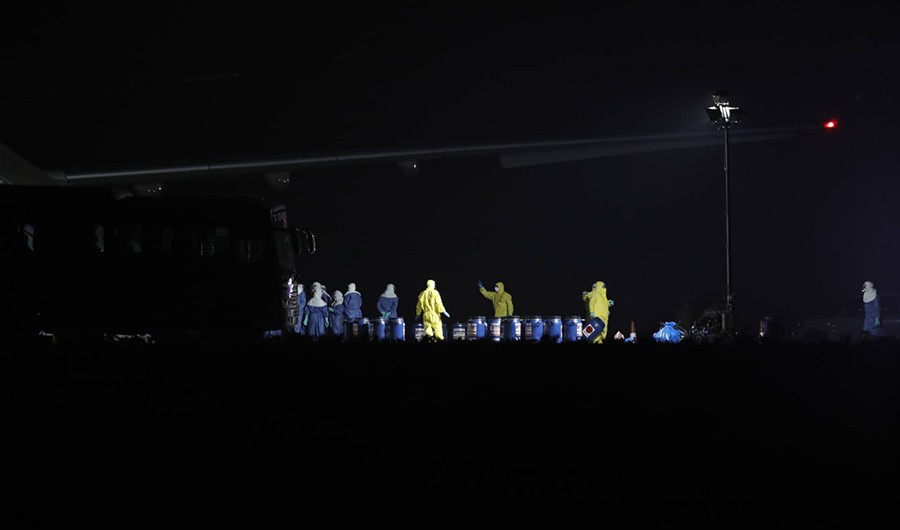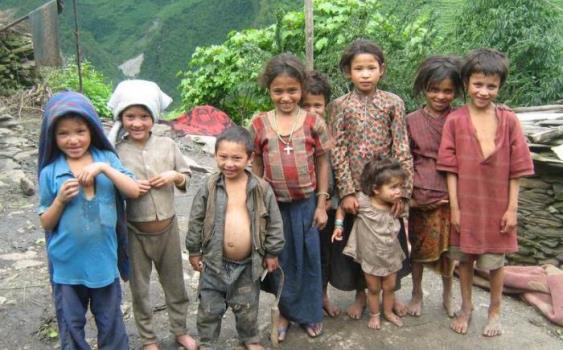296 residents of Block A Suncity Apartments test negative

By AjitaRijal
Kathmandu, Apr. 16: The Ministry of Health and Population said that 296 people of Suncity Apartments at Kageshwori Manohara Municipality-9 have tested negative for COVID-19 in the Rapid Diagnostic Test (RDT) on Wednesday.
Testing through the RDT method was conducted considering the risk of virus spread after two cases were detected there on Tuesday.
Spokesperson of MoHP Dr Bikash Devkota said that 296 residents of Block A of Suncity Apartments were tested today and all the results came out negative.
The residents of other blocks of the apartments would be tested on the basis of their health conditions.
A team of Epidemiology and Disease Control Division under the MoHP conducted the rapid test in the apartment in coordination with 15 health workers appointed by the municipality.The apartment was entirely disinfected with chlorine on Wednesday.
Dr Devkota informed that 5,614 foreign returnees were in quarantine designated by the local and state governments. “The number of quarantined foreign returnees is decreasing because of the tests,” said Dr Devkota.
During the press briefing, Dr Devkota also informed that currently 117 individuals are admitted in isolation wards at various hospitals across the country. Of them, 11 are in Kathmandu while the remaining individuals are in isolation wards of various hospitals outside Kathmandu.
As per the details entered in mobile application and web site of MoHP, 13 more are in red zone as COVID-19 suspects as identified within the last 24 hours.
Till date, 16 people have been reported as positive for COVID-19 confirmed by PCR method. The first infected person has recovered and has resumed normal life while the remaining 15 infected persons are receiving treatment in designated hospitals.
14 districts left to begin RDT
The ministry informed that some of the tests have come positive through the RDT method on Wednesday. “We can confirm the cases after testing through PCR method,” said Dr Devkota.
As of Wednesday, 6,871 tests have been conducted applying polymerase chain reaction (PCR) method and 8,929 tests via Rapid Diagnostic Test (RDT) across the nation.
According to Dr Devoka, 14 districts are left to begin tests through the RDT method among the coronavirus suspects. The RDT test is yet to start in seven districts of State 1, three districts of State 2, one district of State 5, one district of Gandaki State and two districts of Karnali State. All the districts of Bagmati State and Sudhurpachhim State have already started tests via RDT.
‘Don’t panic over positive
cases with RDT method’
On the occasion, Dr Basudev Pandey, director at Epidemiology and Disease Control Division (EDCD), assured that one should not panic if the test came positive through RDT method.
RDT is a method that looks for antibodies in blood that the human body produces in response to a virus infection, said Dr Pandey. Even the recovered patient can test positive for virus with the RDT. So, the test through PCR method is essential as it shows the sign of the virus in the patient’s throat swab, said Dr Pandey.
Dr Pandey said that the case tracking, surveillance and contact tracing are most important factors for identifying the COVID-19 cases. The case investigation team and rapid response team have been mobilised for finding the travel history and contact of the infected people.
Dr Pandey said, “Though contact tracing is a difficult task, we are doing it with the help of local authorities and security forces.”
“The EDCD has 15 teams, having five members in each, comprising epidemiologist, laboratory expert and public health expert for contact tracing,” said Dr Pandey, adding that various other organisations are also supporting for contact tracing.
The team works for contact tracing who came in close contact with the coronavirus infected people. After tracing, the suspects are kept in isolation and further tests and examinations will be conducted, added Dr Pandey.
“We conduct PCR test among the close contacts of the infected and other possible risk groups are tested through RDT,” said Dr Pandey.
Recent News

Do not make expressions casting dout on election: EC
14 Apr, 2022
CM Bhatta says may New Year 2079 BS inspire positive thinking
14 Apr, 2022
Three new cases, 44 recoveries in 24 hours
14 Apr, 2022
689 climbers of 84 teams so far acquire permits for climbing various peaks this spring season
14 Apr, 2022
How the rising cost of living crisis is impacting Nepal
14 Apr, 2022
US military confirms an interstellar meteor collided with Earth
14 Apr, 2022
Valneva Covid vaccine approved for use in UK
14 Apr, 2022
Chair Prachanda highlights need of unity among Maoist, Communist forces
14 Apr, 2022
Ranbir Kapoor and Alia Bhatt: Bollywood toasts star couple on wedding
14 Apr, 2022
President Bhandari confers decorations (Photo Feature)
14 Apr, 2022



